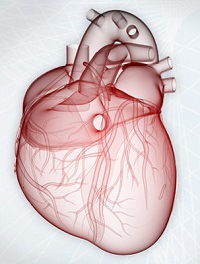
Xeltis has announced that three pediatric patients have been successfully implanted with the world’s first heart valve enabling cardiovascular restoration. The three children were enrolled in the Xplore – I clinical study of Xeltis bioabsorbable pulmonary heart valve – a multicentred feasibility trial currently enrolling pediatric patients from 2 to 21 years of age in leading heart centers in Europe.
The primary objective of the Xplore-I clinical feasibility study is to assess the survival rate of patients undergoing Right Ventricular Outflow Tract (RVOT) reconstruction at six months following implantation of the bioabsorbable heart valve.
The first three trial implants were conducted at Gottsegen György Hungarian Institute of Cardiology’s Pediatric Cardiac Centre in Budapest (Hungary) and University Children’s Hospital in Krakow (Poland). Zsolt Prodan (head of Congenital Heart Surgery, Paediatric Cardiac Centre in Budapest, Hungary), who performed the first two interventions in July, says: “The Xplore-I patients are doing well and have been discharged from hospital. The bioabsorbable implant is performing according to expectations.” Prodan will present trial details at the 30th Annual Meeting of the European Association of Cardio-Thoracic Surgery (EACTS) tomorrow.
Principal investigator of the Xplore-I’ study, and professor of Surgery at the Clinic for Cardiovascular Surgery, University Hospital Bern (Switzerland), Thierry Carrel, comments: “Reconstruction and replacement of diseased heart valves in children using patients’ own tissue could help reduce the risk of complications and of re-interventions observed with animal and human donor implants. We are quite confident regarding this technology, since children from the precursor feasibility study on bio-absorbable blood vessels demonstrate excellent results over two years after implantation.”
Endogenous Tissue Restoration (ETR) is a novel therapeutic approach in cardiovascular regenerative medicine enabling the restoration within the body of complex cardiac parts with patient’s own tissue. The porous structure of a Xeltis’ bioabsorbable heart valve enables cardiovascular restoration by harnessing the body’s natural healing process to pervade it with new healthy tissue once implanted. As a new healthy heart valve or blood vessel made of patient’s own tissue forms around the structure of the implant and takes over functionality, the implanted valve gets absorbed in the body.












